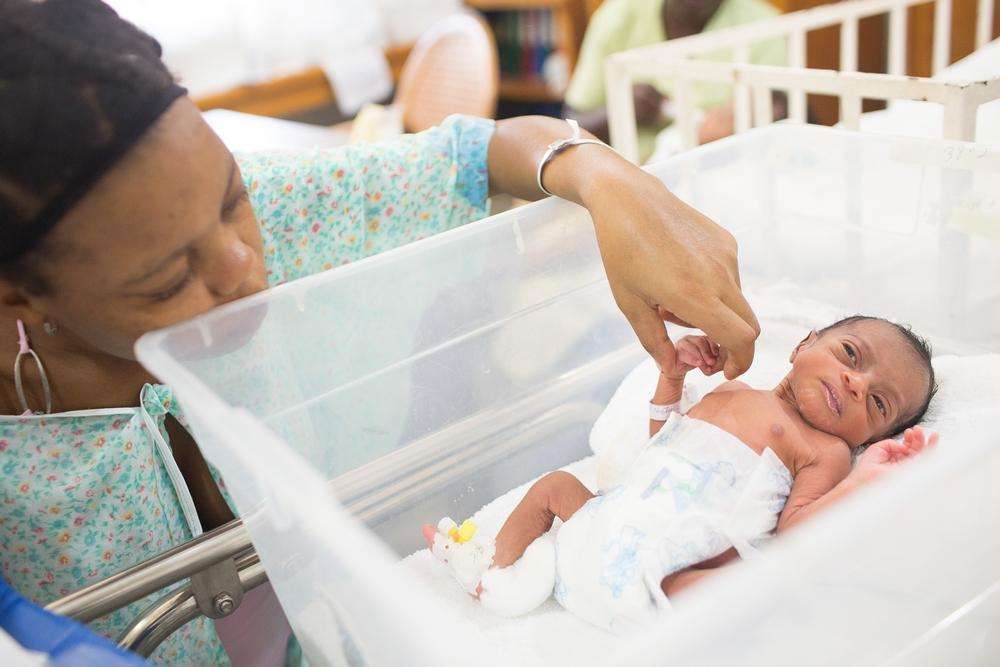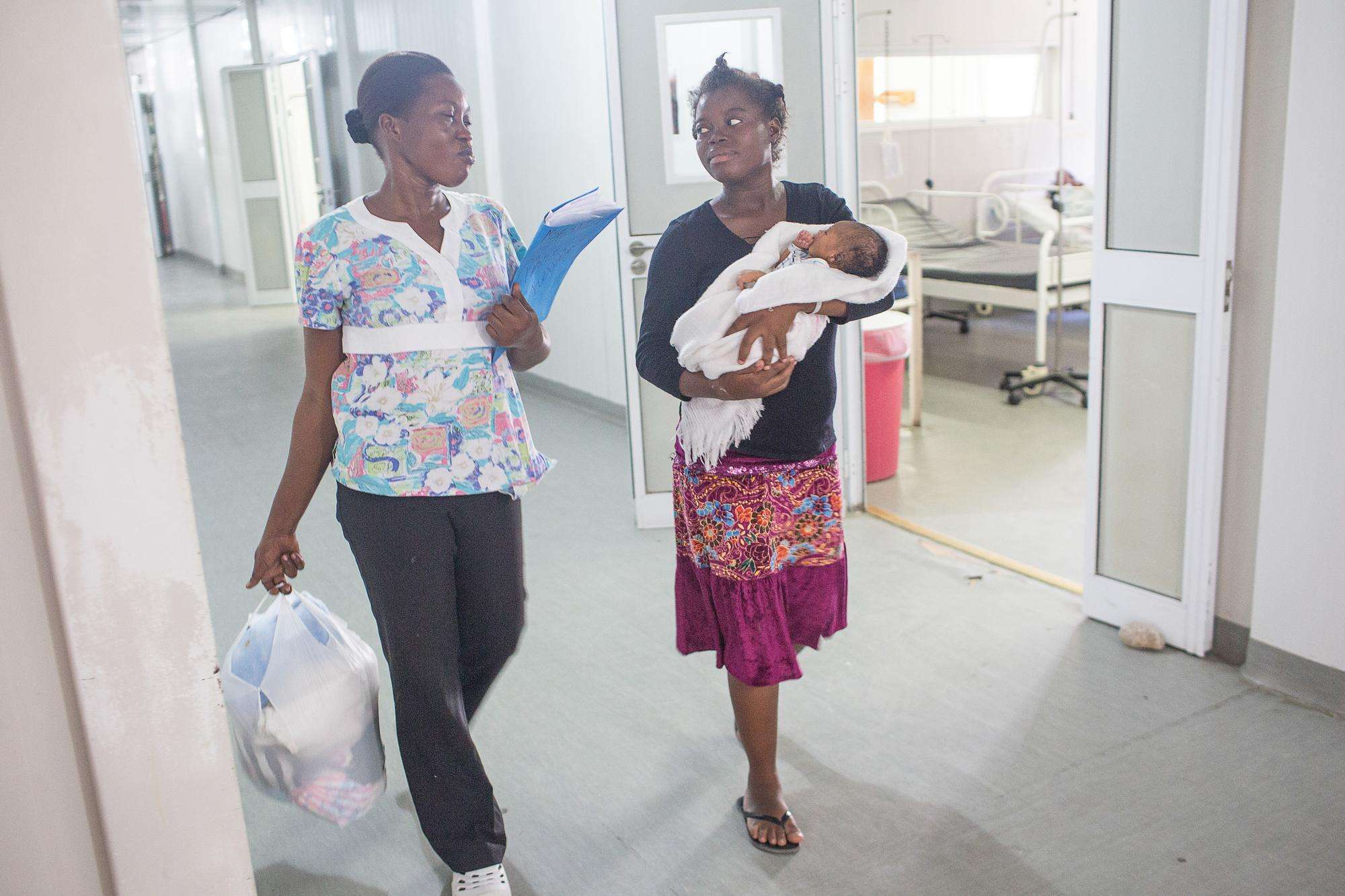By Paul Brockmann, Country Director MSF Haiti
Serene Princeton’s amniotic fluids were leaking for two weeks. During that time, she went looking for help at a number of Port-au-Prince hospitals, including the Centre de Référence en Urgence Obstétricales (CRUO) run by Doctors Without Borders/Médecins Sans Frontières (MSF).
But MSF turned her away because she did not meet the latest admission criteria; the leaking had stopped and, because MSF had to narrow the criteria for emergency obstetrical care, only women at greatest risk from birth complications can be admitted to the CRUO.
Serene went to the general hospital only to learn that the staff there was on strike. She went to other hospitals but found they were only accepting pregnant women at full term, which she was not. She started bleeding and fearing for her own life and that of her baby.
Desperate, she returned to CRUO and explained in a voice hoarse from crying that she felt like she was about to die. At this point, her situation did meet MSF’s criteria, and she was admitted. Ironically, she had to get worse in order to have the chance to get better.
After three days of labor, she gave birth by Caesarean section to a premature baby boy. She named him Dieudens, and, thankfully, he is now doing well.
Too Few Options For Too Many Patients
Giving birth in Haiti costs $8. If it is a complicated delivery, it costs upwards of $300—in a country where more than half of the population lives on only $2 a day.
Pregnant women who aren’t among the wealthy few in Port-au-Prince therefore struggle to get the assistance they need. MSF’s CRUO hospital has been one of the few available options, a place that offers free specialized, high-quality emergency obstetric care.
STORIES FROM MSF'S EMERGENCY OBSTETRICS PROGRAM IN PORT-AU-PRINCE
The reconstruction of Haiti’s healthcare system has proceeded in fits and starts since the devastating 2010 earthquake, but there had been, until recently, funding available for maternal care programs. The “Manman Ak Timoun an Sante” (MATS) program, which was backed by Canada, focused specifically on mother and child health, while medical NGOs filled other gaps in maternal health care provision.
Today, however, the MATS program has been discontinued and international funding for health care has dropped significantly. Haiti, which plans to spend only 5.4 percent of its budget on health care in 2015 and 2016, cannot make up the difference (For reference: neighboring Dominican Republic is dedicating 11.5 percent of its budget to health care).
This is the main reason that MSF has had to narrow its admission criteria at the CRUO hospital. As an independent structure, the CRUO is not directly dependent on international funding, but the funding shortfalls at other facilities means they can treat fewer patients, which in turn has meant that more and more patients have been coming to the CRUO seeking care—more women and newborns than MSF has the capacity to treat in this one hospital.
In 2014, for example, the number of newborns admitted to the CRUO’s neonatal unit increased by more than 32 percent over the previous year, and referrals of pregnant women to the CRUO increased by 18 percent. In response, MSF altered its admission criteria to focus only on those women and newborns children at greatest risk.
Greater Assistance Needed
This has serious implications for the well being of many women. Women like Serene Princeton.
Serene’s story highlights the heightened risks pregnant women and their newborn children in Haiti now face because of cuts in health care funding. Spending by international donors and the Haitian government on health care has shown clear results. These cuts need to be reversed.
Serene was lucky that she did eventually get care and that she and her newborn are now doing okay. Others have not been so lucky.





